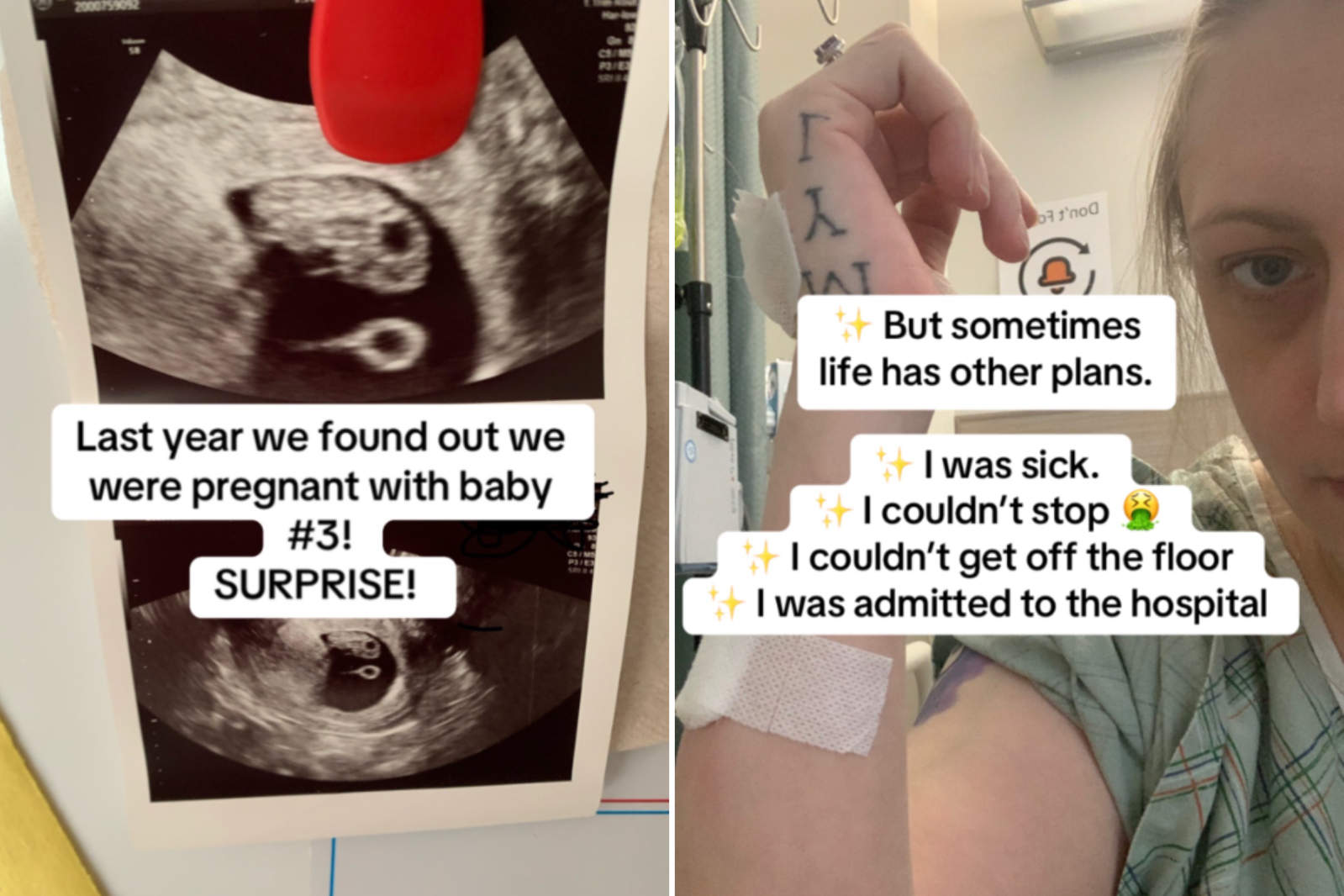By Alyce Collins
Copyright newsweek

“Being here for my kids is my only motivation, I did what was best for my family and I stand by that decision,” Vanessa Stamatopoulos said, after hyperemesis gravidarum left her with a devastating choice between her health and her family.
In January 2024, Stamatopoulos was so excited to learn that her family was growing once more as she was pregnant with baby number three. She had morning sickness throughout both her previous pregnancies (and preeclampsia during her first), but something felt different about the third pregnancy from the start.
Stamatopoulos, 37, who resides in Connecticut, told Newsweek that she “couldn’t stop throwing up” and could barely function. In the past, her morning sickness would subside after being sick and she could continue with her day. But this time round it was debilitating and Stamatopoulos couldn’t even get off the floor or move.
“One night in early February, I couldn’t get up off the bathroom floor,” she said. “My husband called the ambulance and they took me to the first hospital. I was there overnight and discharged around 5 a.m., but by 8 a.m. my husband was calling my OBGYN because again, I could not get off the floor and was continuing to throw up, unable to function.”
From left: Vanessa Stamatopoulos’s ultrasound and pictured in hospital. @reallifewithvee / TikTok
As a result, Stamatopoulos and her husband went to the hospital where her OBGYN was located and she was instantly admitted. Stamatopoulos was kept in for a week, during which time she tried a variety of different medications to ease her extreme sickness, but nothing worked.
What Is Hyperemesis Gravidarum?
Stamatopoulos was diagnosed with hyperemesis gravidarum, which is extreme, persistent nausea and vomiting during pregnancy. The Cleveland Clinic says that symptoms include vomiting more than three times a day, losing more than 5 percent of pre-pregnancy weight, dehydration, dizziness, extreme tiredness and fainting. This can last for weeks, months, or all the way until delivery.
While nausea affects up to 70 percent of pregnant women, hyperemesis gravidarum is far more severe and is treated as a high-risk pregnancy. The Hyperemesis Education and Research (HER) Foundation highlights it as a potentially life-threatening pregnancy disease which has a fetal loss rate of 34 percent.
Stamatopoulos couldn’t even look at food, let alone eat or keep anything down—not even water. In just one week, she lost 17 pounds.
She was on the maximum doses of all her medication, but still nothing was working. As much as she wanted them to increase her medication, doctors warned that there was a concern for birth defects if they did.
“I thought I was feeling a bit better on one of the days, so my husband decided to bring my kids for a visit,” Stamatopoulos said. “In that time, my grandparents came for a surprise visit too. I was violently ill, sweating, was naked while puking, and in walked my grandparents then my kids.
“My daughter immediately hid in the bathroom because she didn’t want to see me like that. She didn’t understand what was happening. That was my turning point, watching the fear in everyone’s eyes while I continued to puke my brains out.”
At that point, at 9 weeks and 2 days gestation, Stamatopoulos made the decision to terminate the pregnancy. It certainly wasn’t easy, but she knew she couldn’t spend the next few months stuck in hospital, away from her children and husband, and sacrificing her health.
Stamatopoulos said: “I’m a stay-at-home mom, so who would raise my kids? I wasn’t even far enough along to know the gender, but I would I have had another little girl? What would they look like? They’d be 1 now, so what would our family look like? I didn’t want to be in that situation, but I was.
“I wanted to live for my kids, the ones that were depending on me. I’ll never forget the kids hiding in the bathroom looking at me with fear. My kids have their mom, and I get to be here for them, and for that, I don’t regret my decision.”
Combating the Stigma
Stamatopoulos was placed under anesthetic for the procedure and intubated in case she choked on her vomit. As soon as she came to, the relief she felt was immediate. She was no longer vomiting, she could move freely, and the room “was no longer spinning.”
Before she was faced with that devastating decision, Stamatopoulos wasn’t against abortions, but she didn’t think she could ever do that. If she didn’t have older children, she wonders if she’d have been able to ride it out, practically living in the hospital until on medication until the baby arrived. But with a family at home, she couldn’t risk her health any longer.
There are still questions that torment her–would she have died if she continued the pregnancy? Would her children have resented their youngest sibling because he or she cost their mom’s life?
Stamatopoulos will live with the “what ifs” forever, but rather tha…



